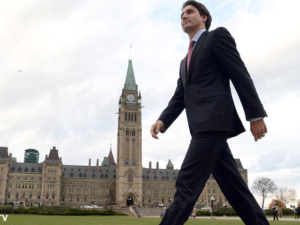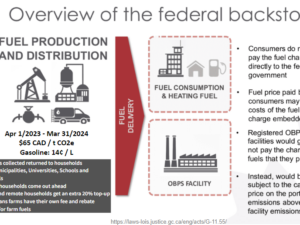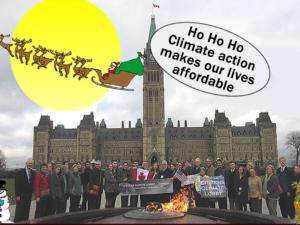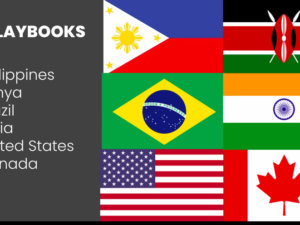Media Release: For Immediate Release: October 22, 2015 On October 19, the Liberal Party of Canada and newly elected Prime Minister Justin Trudeau leapt past the Conservatives and New Democrat Party, ushering in the first Liberal majority government in 15 years with the promise of change. After nine years of stalled climate action under the Harper government, it is safe to say that Canada is about to turn a corner on its environmental and climate policy. How aggressive the Liberal government will be in reducing greenhouse gas emissions and shifting the country to a clean technology economy remains to be seen. The Liberal Party has yet to announce its emissions reduction targets, promising to do so after it meets with the provinces. And the party is committed to facilitating the export of Canadian tar sands bitumen through pipeline development, but promises to do so with environmental oversight despite evidence that 75% of fossil fuel reserves must remain in the ground to avoid climate catastrophe. Trudeau’s mere presence at international climate negotiations in Paris in a late November signals greater engagement and commitment from Canada on the climate file than seen in the past decade. The Harper government pulled Canada out of the Kyoto Protocol and our country became notorious for obstructing progress at international climate negotiations. Under Harper, environmental laws were weakened, and renowned advisory bodies and research stations were dismantled, while government scientists complained of being muzzled. Once upon a time, Canada used to be considered an environmental darling, shepherding in the Montreal Protocol (1989) for ozone destroying chemicals and the Acid Rain Treaty (1991) for sulfur dioxide. Will a Liberal government under Trudeau usher in an era that brings about the transformational change that the climate crisis demands? The Liberal’s campaign platform is both encouraging and concerning. After the Paris climate conference, the government plans to meet with provincial and territorial leaders within 90 days to establish a pan-Canadian framework for combatting climate change. Importantly the Liberals have also promised to work with other countries like Mexico and the U.S. in developing shared clean energy plans. Other promises include fulfilling Canada’s G20 commitment to phase out subsidies for the fossil fuel industry over the medium-term, and investing in Canada’s burgeoning clean technology industry. The Liberals say they want to consult with the provinces before deciding on emission targets, suggesting the targets may be politically motivated rather than based on science. However, they acknowledge in their platform that “these targets must recognise the economic cost and catastrophic impact that a greater-than-two-degree increase in average global temperatures would represent.” The Liberals also plan to leave it up to the provinces to decide on their own carbon pricing plans. While British Columbia, Quebec, Ontario and to a lesser extent Alberta have carbon pricing policies, they do so in lieu of federal leadership. The Liberal government plans to knit the carbon pricing policies of the provinces together. This may solve Canada’s tricky issue regarding provincial control over natural resources, but it could also be seen as an excuse to step away from a potentially explosive topic that has roots dating back to the early 1980s. The Liberal government is up against two very real hurdles. One is the unpopular National Energy Program enacted by Trudeau’s father 35 years ago, which soured relations between the federal government and Western Canada. The other is the perception that the Liberal Party lost the 2008 federal election largely because of then Party leader, Stéphane Dion’s proposed ‘carbon shift’ proposal, which was a revenue neutral carbon tax. Liberal MPs have tended to be more open to our carbon fee and dividend policy than any other Canadian party, save for the Green Party which has adopted it. However, the challenge for Citizens’ Climate Lobby volunteers is to convince the Liberals that there is greater political will nationally for a rising fee on carbon emissions with revenue returned to Canadians versus a hodge-podge of provincial policies dominated by cap and trade. Environmentalists are also concerned about the party’s support for oil sands pipelines. Concern heightened when Trudeau’s campaign co-chair, David Gagnier was forced to step down the week before the election after it emerged he had written a lobbying advice memo to TransCanada, the company building the Keystone XL pipeline. Perhaps the biggest hurdle is recognizing that keeping the majority of Canada’s vast fossil fuel reserves in the ground is the right direction for Canada. Time will tell where the government’s priorities lie – getting fossil fuel exports to market or serious climate action. Dr. Katharine Hayhoe, a Canadian climate scientist feels that now that Trudeau has won a decisive majority, his position could change: “It is certainly true that in the past Liberal governments have not lived up to their promises on climate, but today we are in a very different situation, in terms of seeing the impacts and in terms of other nations like China taking action.” It is going to take more than just one election cycle to solve the climate crisis. We need an engaged citizenry and a functioning democracy. Trudeau’s father once said that backbenchers were nobodies. His son has promised to empower backbenchers which would give all of us a bigger voice in Ottawa. This is promising news as some Liberal elected officials are champions of climate action and a national revenue neutral carbon tax. Lastly, we have a first past-the-post-winner-take-all electoral system in Canada and five robust parties. Clever parties can divide and conquer the electorate to get into power and stay in power using wedge politics and spin. Thus, for Canada not to sink back into a dark cloud of environmental inaction, it is imperative that Trudeau stays true to his promise of replacing the first-past-the-post system in Canada with either proportional representation or ranked balloting. In his first press conference as Prime Minister elect, Trudeau reiterated this promise. Trudeau and his Liberal MPs have been given a majority mandate to make that change possible. Citizens’ Climate Lobby will work with all of our MPs, regardless of political stripes, to help ensure that effectively reducing emissions while boosting the Canadian economy is one promise the Liberals keep.
Media Contact: Cathy Orlando, National Manager, Citizens’ Climate Lobby, cathy@citizensclimatelobby.org , 705-929-4043.
MEDIA RELEASE: Liberal climate promises collide with pipeline dreams
Home » CCL Canada News » MEDIA RELEASE: Liberal climate promises collide with pipeline dreams
MEDIA RELEASE: Liberal climate promises collide with pipeline dreams
Posted on October 22, 2015 in Media Release












